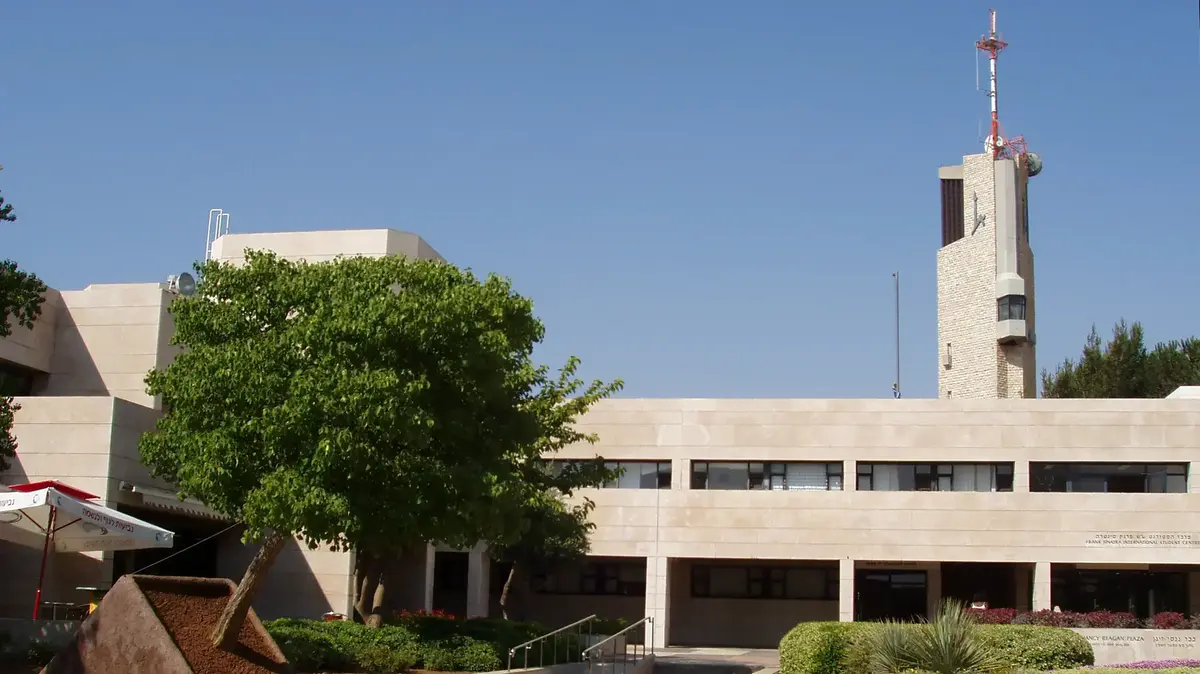Golem, Messiah, Grasshopper - What words have we contributed to the languages of the world, even in Samoan? • And also: nicknames following the prophets Habakkuk and Jeremiah • The linguistic arena
The devil took us, too
Photo:
Getty Images
The Hebrew language has had many languages during its lifetime. Words from Persian, Aramaic, Akkadian, Arabic, German, English and more. Hebrew also contributed quite a few words to world languages. Hebrew words appear in dozens of languages, including English, German, Dutch, French, Spanish, Portuguese, Italian, Arabic, Romanian, Hungarian, Russian, Amharic, Tigrinean, and even American-Creole and Polynesian languages. This is alongside Jewish languages, which contain a treasure trove of Hebrew words.
1. Hebrew has contributed to world languages on three channels. The first channel is the Bible, mainly the Bible, which has been translated into many languages and also holy. The second channel is the slang of societies and cultures around the world, who like to adopt words from different languages, and also from Hebrew. The third channel is words born in New Israel.
2. Hebrew words are very common in Christian prayers, especially from Psalms: 'Hallelujah' and 'Artist'. The name of God, Jehovah, was used according to the traditional Hebrew score: Jehovah. The religious-ritual dictionary has contributed to various languages Messiah, Satan, Jubilee, Hell, resins and remedies, cabbages and sacrifice, as well as Harel, as oppressor and ignorant. The pair of words 'chaos' has found its place in translations and dictionaries. In German they write and say Tohuwabohu. In English: tohubohu.
3. The most common word that comes from Hebrew in the world languages is 'Shabbat'. samedi in French, Sabado in Spanish, Sabata in Arabic as well as in Italian, Armenian, Romanian, Tigrinian and more. In some languages, the word means weekly vacation, or day off at all. English sabbatical is a sabbatical. The slaves who fled Suriname called Wednesday pikí sabá - a small Saturday, and Thursday - gaán sabá, a big Saturday.
5. Many first names in different cultures are Hebrew names. Michael, Daniel, Sarah and Rebecca in English, Musa and Ibrahim in Arabic, Emanuel in French and the list is long.
6. Hoshana, written by hosanna, is used to glorify the name of God. It comes from the tradition of pounding the willows in the Talmud, following the verse from the Psalms "Please the Lord has saved." 'Kabbalah' has become an international word and also the adjective, in Kabbalistic.
7. The Bible has contributed to world mythology the ancient creatures 'beasts' and 'whales'. 'Whale' is the name of the central work of English philosopher Thomas Hobbes, an image of the relationship between government and civilians.
8. Many Hebrew words came to British and American mediation Thus Yiddish was absorbed in English, in fact, a thief, a gentile, a golem, a realist, a madman, a fit and more, all in Ashkenazic pronunciation. "Rabbi" was the nickname for the head of the mafia, especially when the above was a member of the Moshe religion. The word 'under' in the meaning of breech, which sounds in Yiddish 'Toches', gave rise to the English slang word - tush.
10. In the Russian thieves, many Hebrew words, mediated by Yiddish. 'Girlfriend' means a bunch, 'Written' is a fake document, 'Affair' is a rumor, 'Malina' is a hiding place for weapons and loot, following a kennel.
11. In Italian, the Talmudic word 'rabbi' appears in the language coin far l'ave rabbi, to apply to the rabbi. The verb averabbo means flattery. Caino in Italian is evil and cursed, following Biblical Cain. matusalemm is a very old man, according to Methuselah, a name that has become a concept in other languages. The bacucco is in Italian an old fool, following the Prophet Habakkuk.
12. Hungarian, a non-European language, absorbed Hebrew words after the great emigration of Jews to it in the 19th century. The Hungarian dictionary contains words such as kosher, trifle, exile, gentile, tassel, wigs and sukkot. The Hungarian thieves adopted words such as balhé (blahaha) which means scandal, jatt (hand) which is a shake or agreement, szajré merchandise - stolen goods.
13. In Spanish, the word 'Jeremiah' means nested, jeremiada means crying and a tendency to always complain. 'Benjamin' in this language is the youngest son. 'Eden' is, for some reason, a place of disarray. At a time when Jews were trying to convert their religion, words like apostate, devil, defilement, and "bar-mousse masses" came into Spanish. Quite a few words in Spanish came through the Ladino mediation. mancer is the son of a bastard, an incarnation of a bastard in Ladino. malsín is an informer, malsinar - to inform or libel. desmazalado is in unlucky Spanish, a combination of 'luck' and Spanish forms.
15. Ethiopian languages are for the most part Semitic languages, so Hebrew words are similar to these languages. But there are also those who were directly derided by Hebrew, mediated by the ancient Ethiopian, the saying: angel, messiah, hymn, error, question and more.
16. In the Armenian language, Hebrew words and the original meaning can be found. Among them is a heap, grasshopper, bundle and solution. 'Exile' means in Armenian a journey.
17. In the Papiamento language of the Antilles, the words are well signified, well-versed, prostitute, thief, and dignified, with pronunciation and similar meaning in Hebrew. 'Big' in this language means boss, owner.
18. In the Samoa people's name, the constellation Orion Kisila was named after Biblical Kisil, and they also know words like Satan, Torah and more. Missionaries who came to Samoa gave it Hebrew names for plants and animals: cedar, leopard, monkey, dachshund, garlic and more.
19. In English and French dictionaries, words from modern Hebrew were naturalized. The most important of these is Shoah, unnecessary explanations. You can find alongside her words like kibbutz, moshav, Knesset, dome and lamp, as well as institution and shin house. Uzi is an international submachine gun. In Spanish we find the words Israeli and immigration, and in Hungarian the word agency can be heard.
20. One of the unclear words in the American dictionary is copacetic, which means satisfactory. A common hypothesis regarding the origin of the word suggests that the original is the expression of everything Israeli: everything is fine.
Cease an incident and lie under the stretcher
Noga Cascade writes: "A squad commander who passed away stopped the incident in a few minutes, and passed the information to the battalion headquarters." Spoken IDF? Something standard that I missed? "
In the military language, there are quite a few verbs that get unique use, which is also the case with" cease "." Cease "in the comma meaning is usually auxiliary verb:" cease smoking. " The series "Yes, Commander": "Let's just conclude that not only do I destroy it, we all destroy it," where there is also a special military form: destroy instead of ceaseless. This use may be influenced by the phrase "cease fire!", Which also operates There is a need for an object, and the martial law seller "ceased networking." This has roots in the Bible as well:
And more on military and language matters. Moshe Eckstein writes: "I heard in the IDF waves in an interview with Avi Kaminsky the phrase 'lie down on a stretcher'. The above connected "Lie down on the fence" and "We'll go under the stretcher."
• Where did the second wave come from?
• Linguistic arena: Corona dictionary
Zamarin, not what we thought?
Daniel Cohen refers to the question of the origin of the name Zamarin that preceded Zichron Yaacov, from the previous column: "The origin of the name Zamarin is a Samaritan Jew, after a Samaritan settlement established here in the fourth century AD." Daniel quotes things written in the Vineyard of Zichron Yaacov documentation center: "For many years it was customary to think that Zichron-Yaakov's previous name, Zamarin, originated from the name of an Arab tribe that was originally established in the colony, and that the name means" flutist ". and found none who held that it is a rule called 'Smarin, which means in Arabic' Samaria '. Here true surprise of the week was hosted archiving the history of the colony stimulation Roy Merom, a doctoral student in the Department of Land of Israel Studies at Haifa University, and spoke to his listeners about the origin of the name.
according to the study Origin of this name is actually Jewish or Samaritan, from the Second or Second Period, in the fourth century B. Merom claimed that the names 'subrin' and 'somarin' are the only ones of this weight in Palestine, with the name 'subrin' taken from the Samaritan chronicle, as the name of a village Samaritan in the Carmel area, where the Samaritan leader built a synagogue in Baba in the fourth century, while the name 'Zomrin' is an ancient Hebrew name and its meaning in Aramaic-Samaritan 'Vineyards.' These two names were preserved by the Arabs until the Jewish settlement in Palestine was renewed in 1882. Who would like to find more references to these things, welcome to the Book of Samaritans written by Yitzhak Ben-Zvi, later President of the Media Nah. "
Thanks Daniel, no position has been set as to which of the two explanations is correct, but the one that brought sounds convincing, and really surprising.















